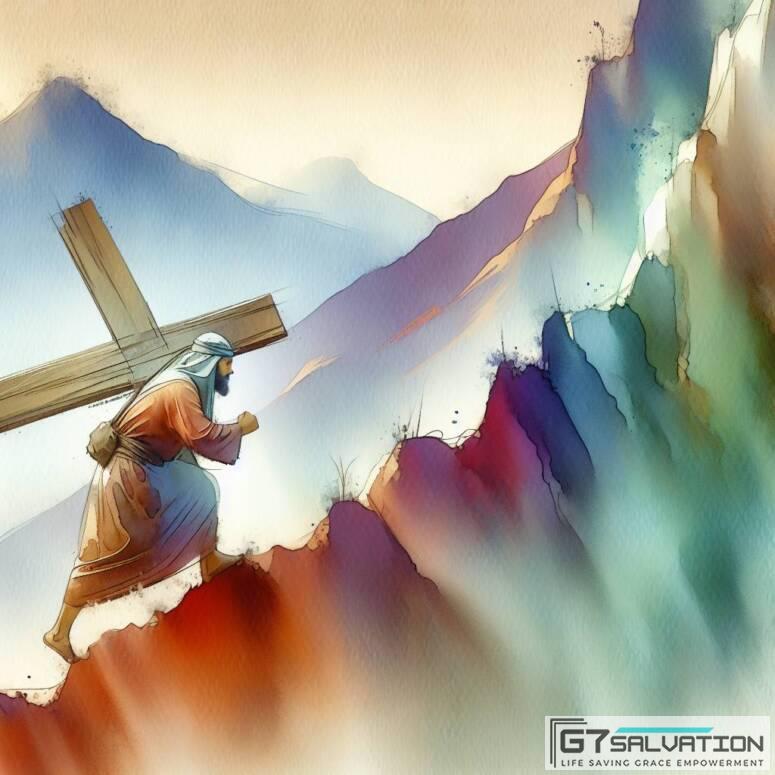In the shadows of Mount Sinai, Moses communed with God while the people below lost themselves in a misguided attempt at worship. The consequences were severe, revealing a profound truth about the dangers of playing church.
This article delves into the pivotal moment when God’s anger flared, exploring the implications of corrupted worship and the profound impact of intimate communion with God.
The Decay of Corrupted Worship
God’s anger burned as He declared, “Your people…have corrupted themselves” (Ex. 32:7 NKJV). The term “corrupted” implies decay, a warning that resonates through the ages. Playing church at a distance from God’s heart leads to deterioration. The episode at Sinai serves as a cautionary story, urging believers to seek a genuine connection with God.
The Prophet Jeremiah echoes this sentiment, proclaiming God’s lament: “For My people have committed two evils: They have forsaken Me, the fountain of living waters, and hewn themselves cisterns—broken cisterns that can hold no water” (Jer. 2:13 NKJV). The imagery of forsaking the living waters emphasizes the necessity of staying close to the source. Like broken cisterns, attempts to hold on to past blessings without daily communion with God prove futile.
Embracing the Call to the Mountain

Jesus’ words resonate with clarity, “If anyone desires to come after Me, let him deny himself, and take up his cross daily, and follow Me” (Luke 9:23 NKJV). The call to deny oneself and daily take up the cross is a call to ascend the spiritual mountain. To play church without a daily encounter with God is to risk spiritual regression.
The essence of Jesus’ message lies in the profound understanding that following Him requires a complete transformation of one’s mindset and way of life. It is a call to forsake the self-centered desires that often consume us and instead embrace a life of selflessness, sacrifice, and devotion to God’s will.
In order to grasp the depth and significance of this call, it is necessary to delve into the symbolism behind taking up one’s cross. The cross, historically known as an instrument of torturous death, represents the epitome of suffering and sacrifice. By taking up our own cross daily, we are acknowledging our willingness to endure hardships and challenges for the sake of our faith and the pursuit of a deeper relationship with Christ.
Aaron’s Deceptive Worship
As Moses descended from the mountain, he encountered the golden calf, a stark symbol of the people’s spiritual downfall. Aaron, questioned by Moses, attempted to deflect blame by highlighting the people’s evil intent. However, his culpability emerged in a shocking revelation.
Aaron claimed, “I cast [the gold] into the fire, and this calf came out” (Ex. 32:24 NKJV). However, upon closer examination, it becomes evident that Aaron’s claim holds little truth, as he did not merely toss the gold into the fire to witness the calf’s mysterious creation, but rather skillfully crafted it himself with an engraving tool. (Read Exodus 32:2-4 to see how he made the golden calf himself)
Moses, filled with righteous anger and disbelief, stared at Aaron in utter astonishment. How could his own brother, who had been appointed as the high priest and spokesperson for the Israelites, be involved in such a heinous act? The weight of disappointment hung heavy in the air as Moses struggled to comprehend the magnitude of this betrayal.
The Consequence of a Shallow Encounter
Aaron’s deceptive act raises questions about the depth of his encounter with God. In his eighty years in Egypt, Aaron failed to ascend the mountain, missing the opportunity to behold and abide with the Almighty. His image of God was shaped by the society around him, leading to a distorted understanding.
Jesus’ distinction between “seeing” and “entering” the kingdom (John 3:3, 5) becomes pertinent. Like Aaron, many are delivered from the world but fall short of entering God’s presence. The call to enter the kingdom involves transcending the superficial and experiencing God intimately.
The Impact of Societal Shaping
God’s response to Aaron’s lie reveals a profound truth. Aaron’s failure to go to the mountaintop allowed societal influences to shape his image of God. In the absence of intimate communion, his worship became tainted by the culture in which he was immersed.
As the divine response to Aaron’s lie unfolds, it sheds light on a deeper revelation – the intrinsic relationship between one’s spiritual journey and the surrounding societal milieu. Aaron’s inability to ascend the mountaintop, where communion with the God awaited, inadvertently subjected him to the pervasive influence of his cultural surroundings.
In this absence of intimate connection with God, his worship became susceptible to the insidious tendrils of the prevailing culture, leaving an indelible mark on his perception of God.
Aaron glimpsed God from afar, seeing only His feet. Contrastingly, Moses entered into God’s presence on the mountain. The disparity highlights the importance of genuine communion in shaping a true understanding of God.
Conclusion
The events at Mount Sinai serve as a timeless reminder of the perils of playing church without genuine communion with God. Corrupted worship, symbolized by the golden calf, reflects the decay that occurs when believers neglect the call to the spiritual mountain. Aaron’s deceptive worship underscores the impact of societal shaping and the need for a deep, personal encounter with the Almighty.
Recommended Bible Study Verses:
- Luke 9:23 (NKJV): “If anyone desires to come after Me, let him deny himself, and take up his cross daily, and follow Me.”
- Jeremiah 2:13 (NKJV): “For My people have committed two evils: They have forsaken Me, the fountain of living waters, and hewn themselves cisterns—broken cisterns that can hold no water.”
- John 3:3 (NKJV): “Jesus answered and said to him, ‘Most assuredly, I say to you, unless one is born again, he cannot see the kingdom of God.'”
- John 3:5 (NKJV): “Jesus answered, ‘Most assuredly, I say to you, unless one is born of water and the Spirit, he cannot enter the kingdom of God.'”







